
Rebecca is a 1940 American romantic psychological thriller film directed by Alfred Hitchcock. It was Hitchcock's first American project, and his first film under contract with producer David O. Selznick. The screenplay by Robert E. Sherwood and Joan Harrison, and adaptation by Philip MacDonald and Michael Hogan, were based on the 1938 novel of the same name by Daphne du Maurier.

The Big Clock is a 1948 American thriller directed by John Farrow and adapted by novelist-screenwriter Jonathan Latimer from the 1946 novel of the same title by Kenneth Fearing.
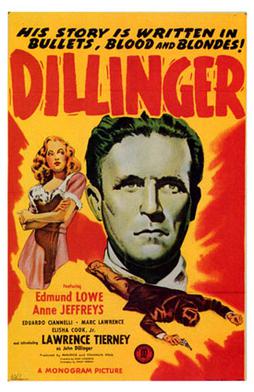
Dillinger is a 1945 gangster film telling the story of John Dillinger.
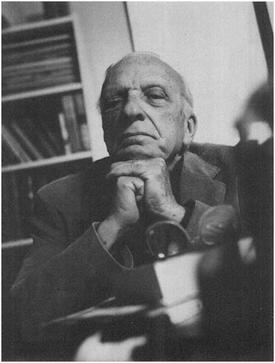
Philip Yordan was an American screenwriter, film producer, novelist and playwright. He was a three-time Academy Award nominee, winning Best Story for Broken Lance (1951).
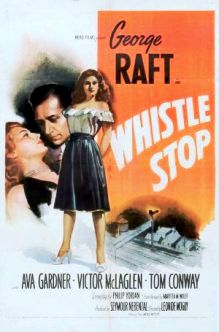
Whistle Stop is a 1946 American film noir crime film directed by Léonide Moguy and starring George Raft, Ava Gardner, Victor McLaglen, and Tom Conway. It was produced by Seymour Nebenzal's Nero Films and distributed by United Artists. The screenplay was written by Philip Yordan, based on a 1941 novel of the title by Maritta M. Wolff.

Patrick Barry Sullivan was an American actor of film, television, theatre, and radio. In a career that spanned over 40 years, Sullivan appeared in over 100 movies from the 1930s to the 1980s, primarily as a leading actor after establishing himself in the industry, and later as a character actor.

The Chase is a 1946 American film noir directed by Arthur Ripley. The screenplay by Philip Yordan is based on Cornell Woolrich's 1944 novel The Black Path of Fear. It stars Robert Cummings as Chuck Scott, a veteran who suffers from hallucinations. When he returns a lost wallet to violent mobster Eddie Roman, Eddie offers to hire him as a chauffeur. Chuck becomes mixed up in a plot to help Eddie's wife Lorna run off to Havana to escape her cruel husband.

Lady, Let's Dance is a 1944 black-and-white film directed by Frank Woodruff that was nominated for two Oscars. Produced by Monogram Studios, the film is unique as an ice skating musical.
King Brothers Productions was an American film production company, active from 1941 to the late 1960s. It was founded by the Kozinsky brothers, Morris, Frank, and Hyman, who later changed their professional surname to "King". They had notable collaborations with such filmmakers as Philip Yordan and William Castle and are particularly remembered today for employing a number of blacklisted writers during the Red Scare of the late 1940s and 1950s. Their films include Dillinger (1945), Suspense (1946), Gun Crazy (1949), Carnival Story (1954), The Brave One, Gorgo (1961), Captain Sindbad (1963), and Heaven With a Gun (1968).

Belita Jepson-Turner, known professionally as Belita, was a British Olympic figure skater, dancer, and film actress.

Street of Chance is a 1942 American film noir mystery film directed by Jack Hively and starring Burgess Meredith as a man who finds he has been suffering from amnesia and Claire Trevor as a woman who protects him from the police, who suspect him of murder. He is suspected of the murder of the wealthy Harry Diedrich. The only eyewitness to the murder was Harry's mute grandmother, and she can only communicate with others through sign language.
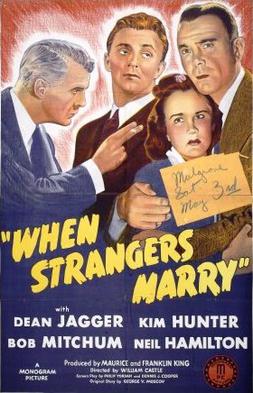
When Strangers Marry is a 1944 American suspense film directed by William Castle and starring Dean Jagger, Kim Hunter and Robert Mitchum.

Red Light is a 1949 American film noir crime film directed and produced by Roy Del Ruth, starring George Raft and Virginia Mayo, and based on the story "This Guy Gideon" by Don "Red" Barry, featuring strong religious overtones.

It Happened on 5th Avenue is a 1947 American comedy film directed by Roy Del Ruth and starring Victor Moore, Ann Harding, Don DeFore, Charles Ruggles and Gale Storm. Herbert Clyde Lewis and Frederick Stephani were nominated for the Academy Award for Best Story, losing to Valentine Davies for another Christmas-themed story, Miracle on 34th Street.

Houdini is a 1953 American Technicolor biographical film from Paramount Pictures, produced by George Pal and Berman Swarttz, directed by George Marshall, that stars Tony Curtis and Janet Leigh. The film's screenplay, based upon the life of magician and escape artist Harry Houdini, was written by Philip Yordan, based on the book Houdini by Harold Kellock. The film's music score was by Roy Webb and the cinematography by Ernest Laszlo. The art direction was by Albert Nozaki and Hal Pereira, and the costume design by Edith Head.
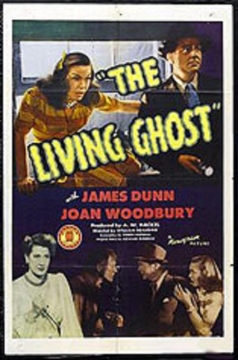
The Living Ghost is a 1942 American mystery-drama film directed by William Beaudine and produced by Monogram Pictures. Starring James Dunn and Joan Woodbury, the film incorporates elements of the horror genre as it follows an ex-private detective who is called in to investigate why a banker has turned into a zombie. As the detective shares wisecracks with the banker's cheeky secretary, the two fall in love. The film was distributed in the United Kingdom under the title Lend Me Your Ear, and later released on home video as A Walking Nightmare.
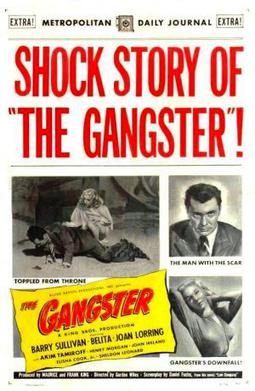
The Gangster is a 1947 American crime film noir starring Barry Sullivan, Belita, Joan Lorring and Akim Tamiroff. It was directed by Gordon Wiles, with a screenplay by Daniel Fuchs, based on his novel Low Company (1937).
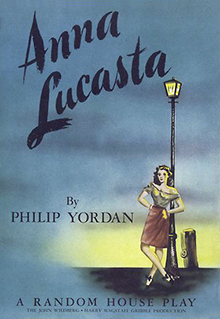
Anna Lucasta is a 1944 American play by Philip Yordan. Inspired by Eugene O'Neill's Anna Christie, the play was originally written about a Polish American family. The American Negro Theatre director Abram Hill and director Harry Wagstaff Gribble adapted the script for an all African American cast, and presented the first performance on June 16, 1944. The play moved from Harlem to Broadway's Mansfield Theatre, running August 30, 1944 – November 30, 1946. The Broadway cast included Hilda Simms, Canada Lee, and Alice Childress.
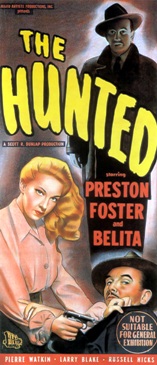
The Hunted is a 1948 American film noir crime film starring Preston Foster, Belita, Pierre Watkin and Edna Holland. It was directed by Jack Bernhard.

Ice-Capades is a 1941 American comedy film directed by Joseph Santley and starring James Ellison, Phil Silvers, and Barbara Jo Allen. Its score, composed by Cy Feuer, was nominated for the Best Scoring of a Musical Picture. The film's sets were designed by the art director John Victor Mackay. It marked the screen debuts for the ice skaters Belita and Vera Ralston, both of whom went on to star in a number of films at Monogram and Republic respectively.



















